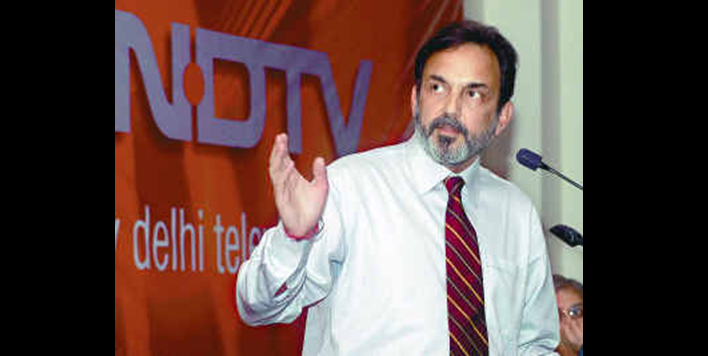NDTV and the Government
THE CITIZEN EDITORIAL
NEW DELHI: As news of the early morning raids by the Central Bureau of Investigation on NDTV raced through the social media journalists phone lines started buzzing, as each tried to make sense of this move by the central government that comes on the heels of an angry ‘exchange’ between a NDTV anchor and a BJP spokesperson on what passes for news debates these days.
NDTV issued a statement: “This morning, the CBI stepped up the concerted harassment of NDTV and its promoters based on the same old endless false accusations.
NDTV and its promoters will fight tirelessly against this witch-hunt by multiple agencies. We will not succumb to these attempts to blatantly undermine democracy and free speech in India.
We have one message to those who are trying to destroy the institutions of India and everything it stands for: we will fight for our country and overcome these forces.”
Even as journalists bodies like the Editors Guild deliberate upon, and determine, the course of action (or response) there are a couple of issues that all scribes are talking about that need to be addressed. One, is this victimisation of a news channel and its top owners/editors? It would appear so, as it comes after anchor Nidhi Razdan told BJP spokesperson Sampit Mahapatra to “leave” her show while on air. She took offense to his accusation that NDTV has an “agenda” and said that she was not prepared to host someone making such remarks against the news television channel. He refused to leave. And within days the Central Bureau of Investigation raided the residence of NDTV top honcho Prannoy Roy. Journalists know that more than often, circumstantial evidence determines the analysis of a story and in this case it is clear that a leading BJP leader insisted that the channel had an agenda, was told off, and the raids followed.
It is no secret that NDTV, both English and in particular Hindi, has irritated those in government today. More so as leaders are becoming increasingly used to servile anchors, and those who take an even slightly independent view as does NDTV Hindi in particular become the targets.
Two, was Razdan within her limits in asking the BJP guest invited to ‘leave’ her program and then cut him off from the debate? Although one wonders what this has to do with the legality, or otherwise of the CBI raids it is an issue that scribes have made central to the ongoing discussions about NDTV. Yes, would have been the simple answer before the days of television, when many a newspaper ostracised politicians for precisely such allegations. And when scribes walked out of a press conference when such accusations were hurled. One recalls former Prime MInister VP SIngh shouting at a reporter that she was a “liar”, she protested, and all journalists present left the room. On another occasion the entire press gallery of the Lok Sabha struck work demanding an apology from a MP who had used defamatory words against a section of the media.
Unfortunately, television has eroded the dignity of the media turning what are supposed to be news debates into a slug-fest between anchors/journalists and guests. NDTV like other channels has indulged in much of the same, although the decibles have been definitely lower than others. This is one of the reasons why senior editors and commentators have been urging caution, and asking television news to differentiate between news and opinion debates. And to keep the discussions within the limits of professionalism instead of using these to incite, and thereby get better ratings for advertisements and money. By not observing the ethics and responsibilities of basic journalism, television has opened doors that will be difficult to close.
However, while it is difficult for anyone outside the government and NDTV to make an assessment about the charges of financial irregularities, it is imperative that the government ,make this process totally transparent, starting with an explanation as to why the CBI has been used to raid a media house? More so as NDTV seems to be on the wrong side of this government, judging from the comments on air by Sampatra and others on the social media. This erodes trust, and raises suspicions about government intent that should be clarified at the earliest. If at all.
Corporate media houses trade in money and power. Well almost. The irregularities are written into the kind of money generated, with whispers always in circulation of the monies given to news television channels by some industrialist or political party. It is now imperative for journalists to demand that all media outlets declare their assets publicly, with ownership patterns so that the viewer knows exactly who or what is behind what is pedalled as news. One knows that often a prime time discussion is planned out of the newsroom, and then instructions given to the reporters and production teams to project a piece of news (non news actually) in the headlines to justify the ‘fixed’ discussion. And how real news is blacked out on the basis of a single phone call from the corridors of power, whatever these might be at any given point in time.
The government has to be held accountable. The media has to clean its act. And then perhaps we might restore the fourth pillar to some of its former glory.





